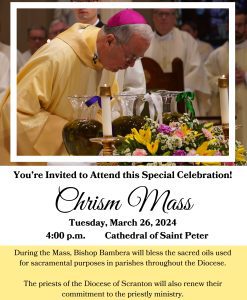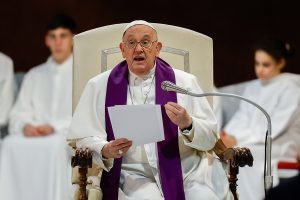SCRANTON – Parishes across the Diocese of Scranton, including the Cathedral of Saint Peter, are busy preparing for Holy Week and Easter. The faithful are invited and encouraged to attend Masses in-person to experience the joy, hope and love of our Lord Jesus Christ.

The Most Reverend Joseph C. Bambera, Bishop of Scranton, will celebrate several Pontifical Liturgies at the Cathedral of Saint Peter for this holiest time of the year. The dates and times are highlighted below.
CTV: Catholic Television of the Diocese of Scranton will provide live coverage of all of the Pontifical Masses from the Cathedral of Saint Peter. In addition to being broadcast, the Masses will also be available via livestream on the Diocese of Scranton website, YouTube channel and all Diocesan social media platforms.
PALM SUNDAY, MARCH 24
The solemn observances of Holy Week, which recall the passion and death of Jesus Christ, begin on Palm Sunday, March 24. Those attending the service receive palms, a reminder of Scripture telling us that people welcomed Jesus by laying down their cloaks and waving palm branches.
The Most Reverend Joseph C. Bambera, Bishop of Scranton, will celebrate a Pontifical Liturgy at 12:15 p.m. at the Cathedral of Saint Peter in Scranton.
Palm Sunday Masses at the Cathedral will also be celebrated at 5:30 p.m. on Saturday, March 23, and 6:30 a.m., 10:00 a.m. and 5:00 p.m. on Sunday. Evening Prayer and Benediction will also take place at 6:00 p.m.
CHRISM MASS, MARCH 26
Priests serving throughout the Diocese will gather at the Cathedral on Tuesday, March 26, at 4:00 p.m. for the Solemn Pontifical Chrism Mass, at which the Holy Oils used during the conferral of sacraments throughout the Church year will be blessed. Bishop Bambera will be the principal celebrant and homilist.
During this Mass, priests will renew their ordination promises and acknowledge the Bishop’s role as the unifying symbol for Church governance and pastoral guidance. After Mass, they will receive the Sacred Chrism, Oil of the Sick, and the Oil of Catechumens, which are used in the celebration of Baptism, Confirmation, Holy Orders, the Anointing of the Sick and the Rites of the Catechumenate.
HOLY THURSDAY, MARCH 28
The three most sacred days of the Church’s liturgical year, known as the Sacred Paschal Triduum, begin on Holy Thursday, March 28, with the Evening Mass of the Lord’s Supper. During the Triduum (Latin for “three days”), the Church solemnly celebrates the greatest mysteries of our redemption, keeping by means of special celebrations the memorial of the Lord, crucified, buried and risen.
Holy Thursday marks the day on which Christ instituted the Holy Eucharist and the priestly Order and gave us the commandment concerning fraternal charity. At the Cathedral, Morning Prayer will be at 8:00 a.m.
The Pontifical Evening Mass of the Lord’s Supper, which will include the Rite of the Washing of Feet, will begin at 5:30 p.m., with Bishop Bambera serving as the principal celebrant. Following this Mass there will be the transfer of the Most Blessed Sacrament to the place of repose. Adoration will continue until 9:00 p.m. Night Prayer will be celebrated at 9:00 p.m. and broadcast via livestream.
GOOD FRIDAY, MARCH 29
On Good Friday, March 29, and the following day (up to the Easter Vigil Mass), by a most ancient tradition, the Church does not celebrate the sacraments at all, except for Penance and Anointing of the Sick. At the Cathedral, Morning Prayer for Good Friday will be at 8:00 a.m.
The Commemoration of the Passion and Death of the Lord celebrated by Bishop Bambera will begin at 12:10 p.m. In addition, the Stations of the Cross will be prayed at 5:00 p.m. Good Friday is a day of fast and abstinence.
HOLY SATURDAY, MARCH 30
Holy Saturday, March 30, is the day that the Church waits at the Lord’s tomb in prayer, meditating on his passion and death and awaiting his resurrection. Morning Prayer will be at 8:00 a.m. at the Cathedral.
Bishop Bambera will be the principal celebrant and homilist of the Easter Vigil Mass at the Cathedral beginning at 8:00 p.m.
On the Holy Night of Easter, many individuals who have participated in the Rite of Christian Initiation of Adults (RCIA) will become fully initiated Catholics by the celebration of their Baptism, Confirmation, and reception of the Eucharist for the first time. This year, 177 people are expected to celebrate in parishes throughout the Diocese. They join tens of thousands of other individuals throughout the world who will become members of the Church that night.
EASTER SUNDAY, MARCH 31
Easter Sunday of the Resurrection of the Lord is the most joyous day in the Church year. This joy overflows into the 50 days of the Easter season, which concludes on Pentecost Sunday. On Easter Day, Bishop Bambera will celebrate a Pontifical Mass at 10:00 a.m. at the Cathedral. Additional Masses at the Cathedral during the day will be at 6:30 a.m. and 12:15 p.m.
Since Christ accomplished his work of human redemption and of the perfect glorification of God through his Paschal Mystery, in which by dying he has destroyed our death, and by rising restored our life, the Sacred Paschal Triduum shines forth as the high point of the entire liturgical year. Therefore, the preeminence that Sunday has in the week, the Solemnity of Easter has in the entire year.

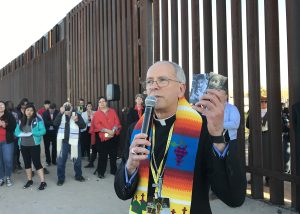
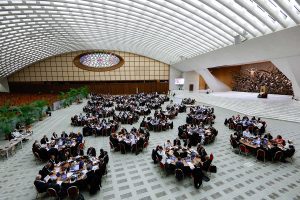
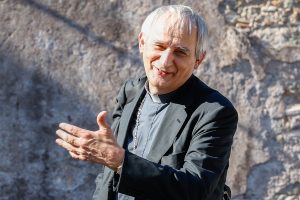

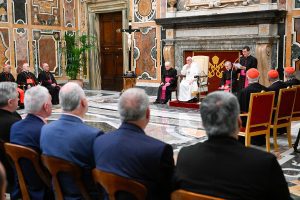
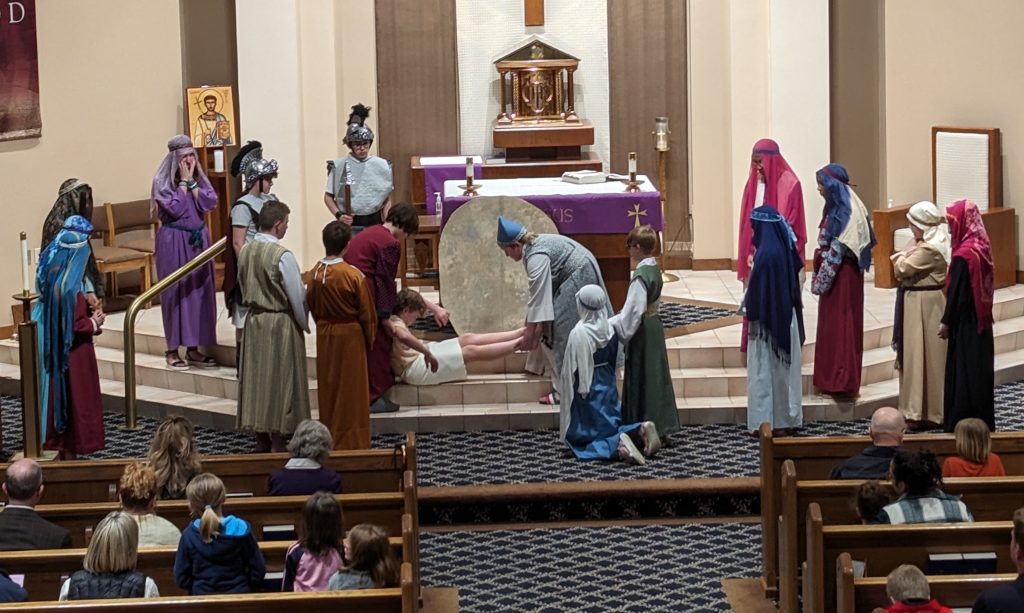 On Friday, March 15th at 7:00 PM, 6th & 7th grade students from the St Boniface & St Lawrence PREP program, presented a Living Stations of the Cross at St Lawrence Church in South Williamsport. They brought the Stations to life through costumed visual representations, music and meditations. The Stations were well attended by families and other parishioners.
On Friday, March 15th at 7:00 PM, 6th & 7th grade students from the St Boniface & St Lawrence PREP program, presented a Living Stations of the Cross at St Lawrence Church in South Williamsport. They brought the Stations to life through costumed visual representations, music and meditations. The Stations were well attended by families and other parishioners. 
